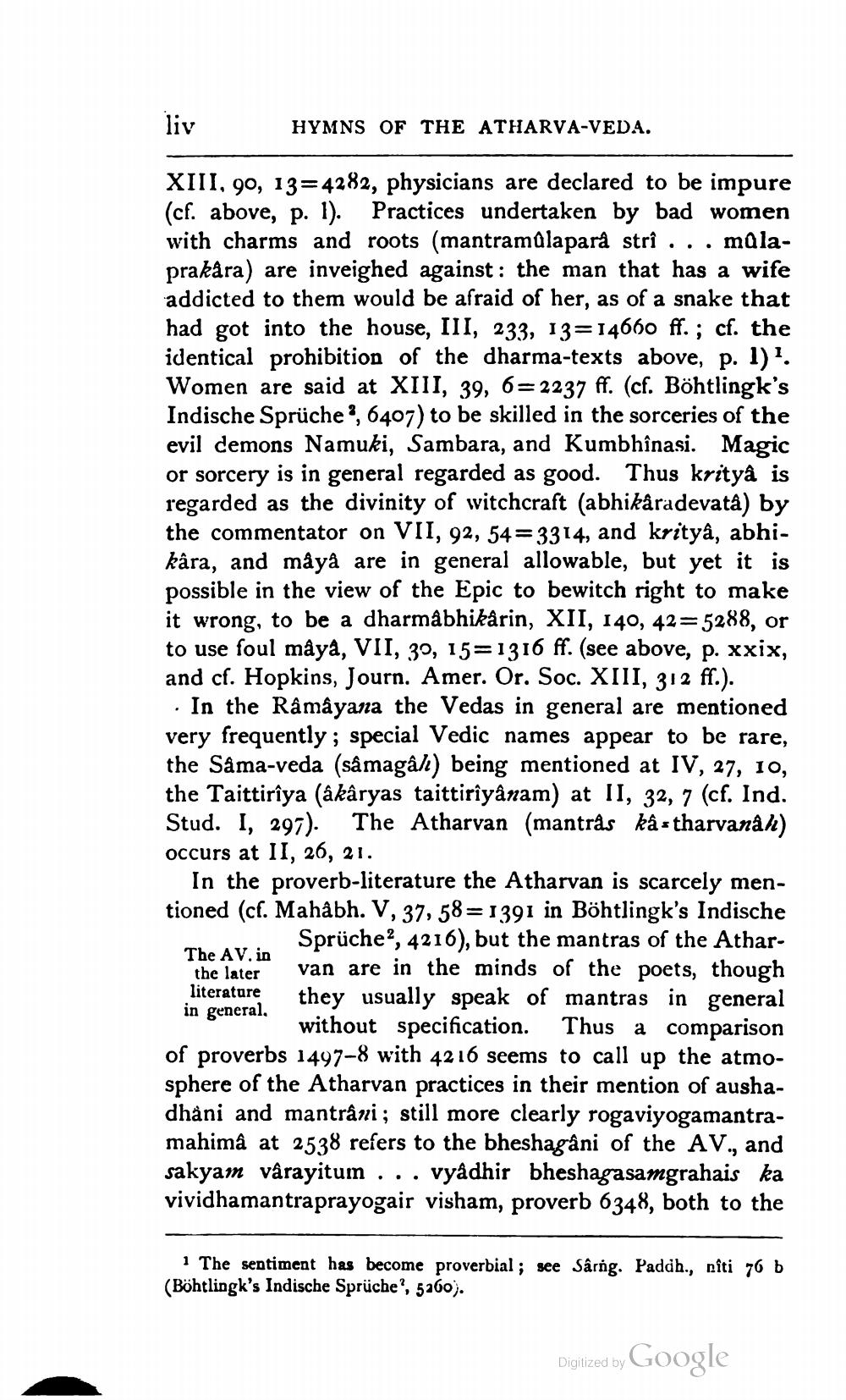________________
liv
HYMNS OF THE ATHARVA-VEDA.
XIII, 90, 13=4282, physicians are declared to be impure (cf. above, p. 1). Practices undertaken by bad women with charms and roots (mantramalaparà strî ... malaprakara) are inveighed against : the man that has a wife addicted to them would be afraid of her, as of a snake that had got into the house, III, 233, 13=14660 ff.; cf. the identical prohibition of the dharma-texts above, p. 1)?. Women are said at XIII, 39, 6=2237 ff. (cf. Böhtlingk's Indische Sprüche °, 6407) to be skilled in the sorceries of the evil demons Namuki, Sambara, and Kumbhînasi. Magic or sorcery is in general regarded as good. Thus krityâ is regarded as the divinity of witchcraft (abhikåradevata) by the commentator on VII, 92, 54=3314, and krityâ, abhikâra, and måyå are in general allowable, but yet it is possible in the view of the Epic to bewitch right to make it wrong, to be a dharmabhikårin, XII, 140, 42=5288, or to use foul mâya, VII, 30, 15=1316 ff. (see above, p. xxix, and cf. Hopkins, Journ. Amer. Or. Soc. XIII, 312 ff.).
· In the Ramayana the Vedas in general are mentioned very frequently; special Vedic names appear to be rare, the Sâma-veda (sâ magâl) being mentioned at IV, 27, 10, the Taittirîya (akâryas taittirîyânam) at II, 32, 7 (cf. Ind. Stud. I, 297). The Atharvan (mantras kastharvanah) occurs at II, 26, 21.
In the proverb-literature the Atharvan is scarcely mentioned (cf. Mahâbh. V, 37, 58=1391 in Böhtlingk's Indische
... Sprüche', 4216), but the mantras of the AtharThe AV. in the later" van are in the minds of the poets, though literature they usually speak of mantras in general in general,
without specification. Thus a comparison of proverbs 1497-8 with 4216 seems to call up the atmosphere of the Atharvan practices in their mention of aushadhani and mantrâni; still more clearly rogaviyogamantramahimâ at 2538 refers to the bheshagâni of the AV., and sakyam vârayitum ... vyâdhir bheshagasamgrahais ka vividhamantraprayogair visham, proverb 6348, both to the
i The sentiment has become proverbial ; see Sârng. Padah., niti 76 b (Böhtlingk's Indische Sprüche?, 5260).
Digitized by Google




